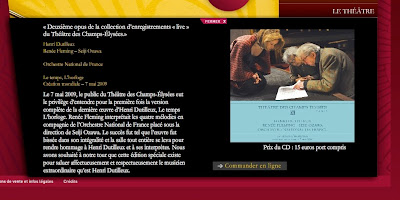This was maybe the first opera in which Wagner announced his approach to composing, to structuring the musical language in such a way that it supports the flow of the dramatic action [instead of interrupting it by the occasional arias]. This opera is still far from what Wagner would make later, but here you can already see a clear distinction from what's been done before him.
The smartest element in the libretto of
The Flying Dutchman is its ambiguity that allows countless interpretations, and as many ways to keep this opera in life in theaters (is it about the
Dutchman?, or about
Senta?; is the
Dutchman real?, or he's just a product of fertile imagination?...)
Martin Kusej goes a step beyond and stresses the role of
Erik much more than the other directors did/do.
Kusej exhibits his cold way to depict the "
naked truth" (always with a white background to emphasize the contrasts), and his well-known "
cruelty" to push his interpretation of the libretto farther than necessary. In the process he often goes against the expectations of typical operatic audience, i.e. there is no happy-ending nor you leave the show filled with optimism. His work forces you to think rather than dream.
In a sense his show was telling the audience that they are being insensitive [
self-centered] and borderline obnoxious, which is why I found the joyful applause at the end quite incongruent. [Apparently he was booed at the premiere ---> a far more conceivable reaction, if you ask me :-)]


































